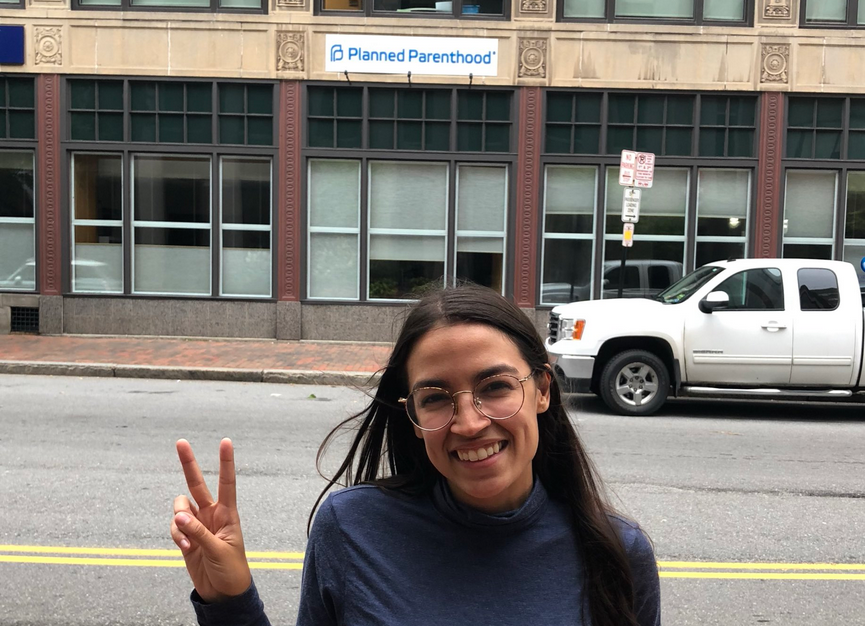New York Congresswoman Alexandria Ocasio-Cortez and other House Democrats are putting pressure on the U.S. Food and Drug Administration to end a vital safety requirement for the abortion drug mifepristone.
In a letter this month, Democrats on the House Oversight Committee asked acting FDA Commissioner Janet Woodcock to stop requiring that the abortion drug be provided in-person, Politico reports.
The abortion drug mifepristone, coupled with a second drug, mifeprostol, is used to abort unborn babies up to 10 weeks of pregnancy in the United States. Because of the risks to the mother, the FDA requires abortion facilities to administer mifepristone in-person after an examination.
Ocasio-Cortez, Rep. Ayana Pressley, D-Massachusetts, and others said the safety regulation is “medically unnecessary” and should be eliminated immediately.
“Imposing this requirement in the midst of a deadly pandemic—one that has disproportionately impacted communities of color across the United States—needlessly places patients and providers in harm’s way, and further entrenches longstanding health inequities,” they wrote in the letter.
But even the pro-abortion Obama administration kept the safety requirement in place when it expanded the use of the abortion drug in 2016.
Please follow LifeNews.com on Gab for the latest pro-life news and info, free from social media censorship.
The in-person requirement is vitally important for women’s safety because of the potentially deadly risks of the drug. Mifepristone can be deadly to the mother as well as her unborn baby especially if she has an undetected ectopic pregnancy – something an in-person check-up would detect.
Without the safety regulation, abortion facilities could sell the drug via telemedicine or mail order, meaning the woman may never see a doctor or even have a check-up before she aborts her unborn baby.
Abortion advocacy groups claim mifepristone is very safe, but a new study in Issues in Law & Medicine in January found “glaring deficiencies” in federal reporting requirements that suggest many complications are not being reported.
“Significant morbidity and mortality have occurred” after women take the abortion drug, the researchers wrote, noting the high risk connected with an undetected ectopic pregnancy.
A pre-abortion “ultrasound should be required to rule out ectopic pregnancy and confirm gestational age,” the study states. It also noted that the FDA complications reporting system “is inadequate and significantly underestimates the adverse events from mifepristone.”
Despite the risks, abortion advocacy groups have been pushing aggressively to eliminate the in-person requirement for the abortion drug. Last year, the American College of Obstetricians and Gynecologists filed a lawsuit challenging the FDA requirement because of the coronavirus pandemic.
A federal judge sided with the pro-abortion group, but the Trump administration appealed and the U.S. Supreme Court agreed that the safety regulation should stay in place.
Courts have not yet ruled on the merits of the case, which is being heard by the Fourth Circuit Court of Appeals.
But it’s not yet clear how the Department of Justice will respond to the lawsuit now that the Biden administration has taken over.
The FDA could also agree to suspend the in-person requirements, which would make the case moot, according to the American Civil Liberties Union, which is representing ACOG in the lawsuit.
In the United States, mifepristone has been linked to at least 24 women’s deaths and 4,000 serious complications. Risks include excessive bleeding, severe abdominal pain, infection and hemorrhage.
A 2009 study “Immediate Complications After Medical Compared With Surgical Termination of Pregnancy,” in Obstetrics and Gynecology found a complication rate of approximately 20 percent for the abortion drugs compared to 5.6 percent for surgical abortions. Hemorrhages and incomplete abortions were among the most common complications.
England de-regulated the abortion drug during the pandemic last year and saw disastrous consequences. There have been numerous reports of health and safety problems, including two women who died after taking the drugs. In another case, authorities are investigating how a woman who was 28-weeks pregnant received the abortion drugs in the mail and used them to abort her viable, late-term unborn baby.








